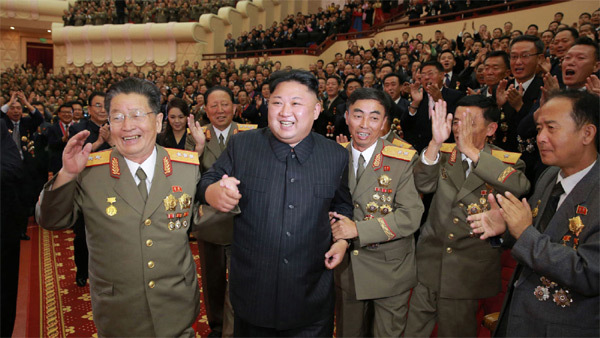Will new sanctions stop Kim Jong-un?
The new sanctions that the United Nations Security Council passed early on September 12 against North Korea were described as the "strongest" ever imposed on the isolated country.
"It will cut very deep," US Ambassador to the United Nations Nikki Haley declared.
 |
| Photo: Sky News |
According to Sky News, in August, a round of sanctions was also imposed on North Korea because of its missile tests. However, immediately, leader Kim Jong Un ordered an unprecedented nuclear test.
The previous sanctions resolution, in November 2016, was also hailed as “the Security Council’s toughest and most comprehensive yet.” However, not long after, North Korea successfully conducted two intercontinental ballistic missile (ICBM) tests that could reach the US, and tested a series of other short- and medium-range weapons.
The adoption of a resolution at the UN Security Council allows the international community, especially the five permanent members with veto power – China, Russia, France, Britain and the United States – to show unity by issuing a form of collective warning to North Korea. But in reality, countries have yet to reach a consensus on the way forward.
There is a big difference in the way Russia and China view North Korea on the one hand and the US and its allies on the other.
China fears regional instability. But the threat of North Korea’s nuclear, biological and chemical weapons is a major headache. Russia, which also shares a border with North Korea, is also unhappy about the prospect of American troops moving closer to its eastern flank.
Both Moscow and Beijing are pushing a dual proposal: the US and South Korea stop joint military exercises on the Korean peninsula and Pyongyang halts its nuclear program that has caused tension.
If the idea is to gradually increase pressure until Kim Jong-un is forced to unilaterally dismantle his weapons program and call for dialogue, the wait will be long, and in the meantime, North Korean scientists will surely be rushing to perfect the ICBM, Sky News said.
In the 1990s, despite economic difficulties, Pyongyang continued to prioritize the military, pursuing the Songun (military number 1) policy.
Putin himself alluded to this when he commented that North Koreans would rather “eat grass” than give up their nuclear program. Therefore, in the coming time, the world will likely witness North Korea continue to test weapons no matter how strict the embargo is.
According to Vietnamnet.vn
| RELATED NEWS |
|---|

